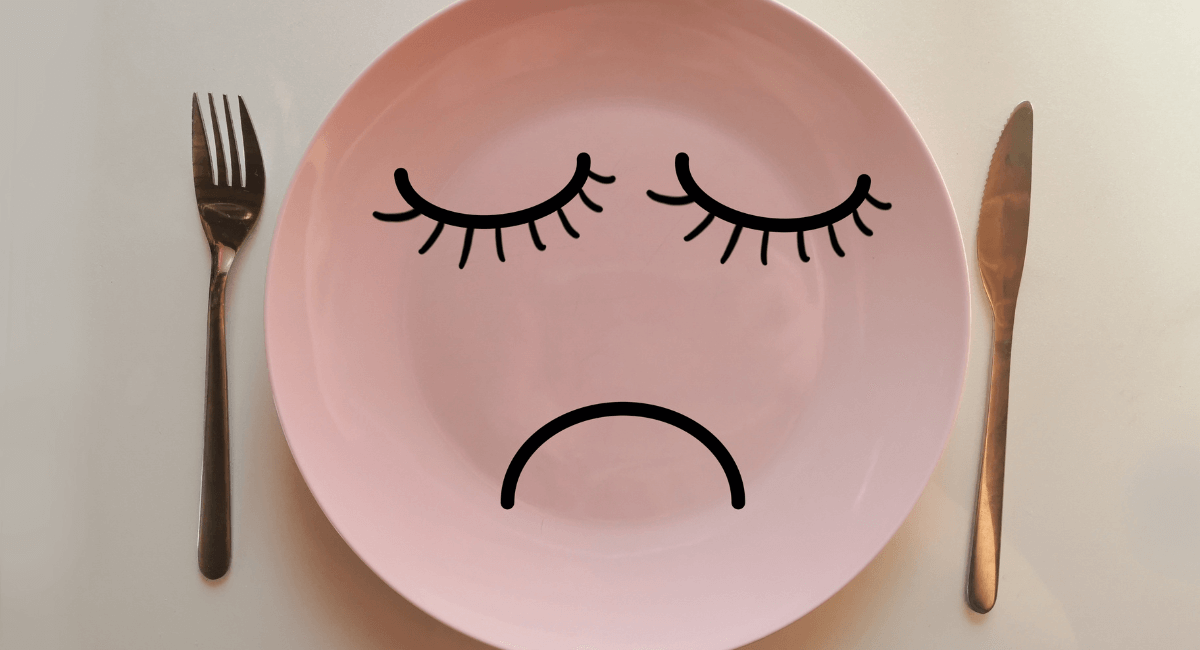It’s my hormones.
You hear this all the time. But what does this even mean?
So many women think that hormonal imbalances are just a part of life: getting older, getting your period, approaching menopause, and feeling stressed.
While your hormone levels will fluctuate throughout your menstrual cycle and as you age, uncomfortable symptoms due to hormonal issues are not a normal part of life. They may be a sign that something is off.
There may be a myriad of reasons why your hormones are off-balanced, but there is one common cause we rarely talk about. It’s the overconsumption of sugar!
So let’s talk about it. How does sugar affect your hormones? And how to reduce the impact of sugar on your hormonal health? Read on to learn more.
How Does Sugar Contribute to Hormonal Imbalances?
Diet books tell you to stay away from sugar because it may make you gain weight. But there are a lot more issues with sugar than just vanity. Sugar may contribute to hormonal imbalances. Too much sugar in your diet may disrupt the hormone insulin and increase the risk of insulin resistance, prediabetes, and type 2 diabetes. But it is also closely connected to your estrogen, testosterone, and other hormonal levels. Let’s look at this problem closer.
Sugar and Estrogen
What comes to mind when I say PMS? Besides mood swings and pain, I bet you see some chocolate, candy, and carby comfort food too! These are not just stereotypes. Research has shown that women with PMS eat more refined sugar than those without PMS, and this extra sugar may worsen their symptoms (1).
Why? Because sugar may increase estrogen levels. According to a 2013 study published in The American Journal of Clinical Nutrition, drinking sugary sodas may increase estrogen levels in premenopausal women (2). Increased estrogen levels, of course, may lead to estrogen-progesterone imbalance and estrogen dominance. Estrogen dominance may lead to all kinds of issues, including weight gain, belly fat gain, fatigue, bloating, PMS symptoms, mood imbalances, brain fog, concentration issues, and more (3).
Fat Cells and Estrogen
Your fat cells, particularly the ones found in your belly fat area, produce estrogen. If you are eating too much sugar, especially refined sugar and carbs, your body copes with the excess by turning them into fat cells (4). This fat accumulation is particularly common in the midsection (5).
In return, your fat cells will likely end up producing more estrogen. Basically, your adipose tissue acts like an endocrine organ (6). Unfortunately, estrogen release and storage related to excess fat if not helpful for hormonal balance, but may lead to hormonal imbalance instead. According to a 2020 review published in Pulmonary Circulation, adipose tissue or also known as body fat, is the primary source of estrogen and circulating estrogen, which may increase the risk of arterial hypertension and obesity (7).
The more sugar you eat, the more belly fat you may end up with, and the more estrogen your body may end up making. PMS, mood imbalances, and other issues related to increased estrogen and hormonal imbalance may increase your cravings for sugary comfort foods. This can turn into a never-ending cycle if you don’t pay attention.
Insulin Spikes and Hormonal Imbalance
Insulin is a hormone made in your pancreas. It helps to regulate the amount of sugar in your blood. Eating too much sugar may lead to insulin spikes and blood sugar imbalances. Your body will have to make more and more insulin to keep up with all the sugar coming in. This may increase your risk of insulin resistance, prediabetes, and type 2 diabetes (8).
Elevated insulin levels may also reduce your sex hormone-binding globulin (SHBG) levels. SHBG helps to control your sex hormone levels. SHBG is known for binding to excess estrogen and testosterone in your blood. But the decrease in SHBG due to insulin spikes may cause hormone levels to rise but also get stuck in the tissue instead of being bioavailable to use. This may affect the ratio of estrogen and progesterone and increase symptoms of estrogen imbalance (9).
Sugar and Testosterone
Though we often refer to it as a ‘male sex hormone’, testosterone is present and is vital in female hormonal health too. Our ovaries and adrenal gland make testosterone! Testosterone is critical for sexual function, muscle mass, and bone density. Insulin may increase testosterone production.
Though testosterone is essential, too much testosterone due to insulin spikes and insulin resistance may increase mood swings, hair loss, acne, and other unwanted hormone-related symptoms in women. According to a 2019 research published in Frontiers in Endocrinology, higher testosterone levels may increase the risk of diabetes in women (11).
Insulin resistance and testosterone imbalance are two of the key features in polycystic ovarian syndrome (PCOS),which is a common hormonal condition that may also be characterized by irregular menstruation, fertility problems, and other hormonal dysfunction (12). Again, the problem here is hormonal imbalance where sugar intake can affect the balance. On the flip side, testosterone replacement therapy for perimenopause and menopause may be helpful for some women to improve hormonal imbalance (13).
Sugar and Your Adrenals
Eating too much refined sugar may also affect your adrenal hormones as well. Your adrenal glands are responsible for regulating cortisol, a hormone that helps your body to process stress. The problem is that your body may interpret blood sugar spikes from too much sugar as stress and lead to increased cortisol levels (14, 15). Increased cortisol may increase weight gain, mood imbalances, and other issues. Over time, this may increase the risk of adrenal fatigue, leaving you feeling tired, drained, irritable, jittery, and anxious.
Sugar and Your Thyroid
Your thyroid gland is responsible for releasing hormones that help to regulate your metabolism, body temperature, and cognitive function. Unfortunately, metabolic syndrome and thyroid dysfunction often co-occur. If you are eating too much sugar on a regular basis, the insulin in your body won’t be able to respond to all the excess and deal with the sugar well. This may lead to insulin resistance and eventually prediabetes or type 2 diabetes in the long-run.
However, insulin resistance may also end up damaging your thyroid (16, 17). If that happens, it won’t be able to create the right amount of thyroid hormones essential for healthy functioning. As you see, your hormones don’t work just by themselves. They are interconnected. If the levels of one hormone are off, chances are, your other hormones will be affected too. A high-sugar diet may only throw off the levels of only one hormone at first, but over time, this may lead to complete havoc in your endocrine system.
Tips to Reverse the Impact of Sugar on Your Hormones
If you’ve been used to eating lots of sugar and carbs, changing your diet and lifestyle can feel overwhelming. Don’t worry. I have some simple tips to help you reduce your sugar intake and improve your health.
Drink Lots of Water and Skip Sugary Drinks
Sodas, energy drinks, boxed juices, alcoholic beverages and other sugary drinks are just empty calories. They fill up your body with sugar and may even dehydrate your body. Hydrate your body with lots of purified water instead. If you find water boring, add some lemon or lime juice, cucumber slice, mint, basil, or other herbs for taste. Brew a fruity or flavored tea to add some flavor as well. There are other forms of flavoring that are either low-calorie or noncaloric. Skip the juicing fruit craze and avoid adding too much fruit to your smoothies or shakes. If you are into juicing and smoothies, focus on greens and veggies, such as kale, spinach, cucumber, and celery. For smoothies and shakes, add healthy fats, such as avocados, nut butter, and coconut meat, and a protein powder.
Keep Your Carb Intake Low
Keep your overall glycemic load low by sticking to a lower carbohydrate diet. Focus on eating lots of healthy fats, such as avocados, olives, coconut oil, and extra virgin olive oil, animal protein from grass-fed meat, pasture-raised poultry and eggs, and wild-caught fish. Avoid refined sugar and processed foods. Your carbs should only come from whole foods, such as vegetables and fruits, ideally from low-glycemic index sources.
Skip Fake Sugar and Sugar-Free Options
Fake sugars and sugar-free options may help to lower your calories, but they are loaded with artificial ingredients. Overall, they may increase inflammation, chronic health issues, and even cravings for sugar. For some people, it may be the first step to getting into the mindset of healthy eating, but there are better options. Monk fruit and stevia may be good options to add some sweetness without raising your blood sugar levels and adding extra calories.
Try a Continuous Glucose Monitor
Using a continuous glucose monitor (CGM) can let you see what certain foods do to your body. When my patients use a CGM, it allows us to see when sugar spikes happen. It helps us to create a personalized diet plan and monitor your symptoms.
Pay Attention to Stress, Sleep, and Exercise
Chronic stress, poor sleep, and a lack of exercise may all increase sugar cravings, weight gain, hormonal imbalances, and chronic health issues. Reduce your stress levels. Try meditation, mindfulness, breathwork, journaling, and gratitude. I recommend that you get 7 to 8 hours of restorative sleep at night. Move your body throughout the day and exercise 5 days a week for 20 to 30 minutes.
Try Some Supplements
Some supplements may be helpful for reducing blood sugar imbalances and hormonal issues. I particularly love berberine. Research has shown that berberine may be just as effective as metformin for prediabetes (14, 15). Cinnamon, American ginseng, vitamin D, prebiotics (fiber), and probiotics may help improve your blood sugar levels and your body’s response to insulin (16, 17, 18, 19).
Next Steps
If you have difficulty losing weight, dealing with hormonal imbalance, or having chronic symptoms, I invite you to a consultation with us. Together, we can uncover the root causes of your condition and create a personalized treatment plan to regain your health and energy naturally. Schedule your free consultation today here.











